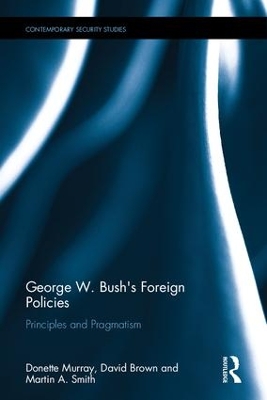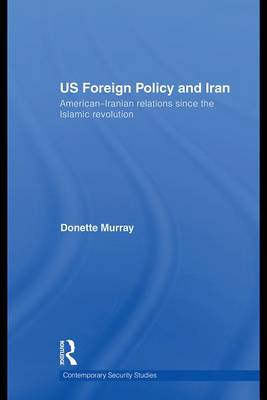Contemporary Security Studies
2 total works
George W. Bush's Foreign Policies
by Donette Murray, David Brown., and Martin A Smith
This book offers a fresh assessment of George W. Bush’s foreign policies.
It is not designed to offer an evaluation of the totality of George W. Bush’s foreign policy. Instead, the analysis will focus on the key aspects of his foreign and security policy record, in each case considering the interplay between principle and pragmatism. The underpinning contention here is that policy formulation and implementation across Bush’s two terms can more usefully be analysed in terms of shades of grey, rather than the black and white hues in which it has often been painted. Thus, in some key policy areas it will be seen that the overall record was more pragmatic and successful than his many critics have been prepared to give him credit for. The president and his advisers were sometimes prepared to alter and amend their policy direction, on occasion significantly. Context and personalities, interpersonal and interagency, both played a role here. Where these came together most visibly – for instance in connection with dual impasses over Iraq and Iran – exigencies on the ground sometimes found expression in personnel changes. In turn, the changing fortunes of Bush’s first term principals presaged policy changes in his second. What emerges from a more detached study of key aspects of the Bush administration – during a complicated and challenging period in the United States’ post-Cold War history, marked by the dramatic emergence of international Islamist terrorism as the dominant international security threat – is a more complex picture than any generalization can ever hope to sustain, regardless of how often it is repeated.
This book will be of much interest to students of US foreign policy, international politics and security studies.
US Foreign Policy and Iran is a study of US foreign policy decision-making in relation to Iran and its implications for Middle Eastern relations. It offers a new assessment of US-Iranian relations by exploring the rationale, effectiveness and consequences of American policy towards Iran from the aftermath of the 1979 Iranian Revolution to the present day.
As a key country in a turbulent region and the recipient of some of the most inconsistent treatment meted out during or after the Cold War, Iran has been both one of America's closest allies and an 'axis of evil' or 'rogue' state, targeted by covert action and contained by sanctions, diplomatic isolation and the threat of overt action. Moreover, since the attacks of 11 September 2001, Iran has played a significant role in the war on terror while also incurring American wrath for its links to international terror and its alleged pursuit of a nuclear weapons programme.
US Foreign Policy and Iran will be of interest to students of US foreign policy, Iran, Middle Eastern Politics and international security in general
Donette Murray is a Senior Lecturer in the Department of Defence and International Affairs at the Royal Military Academy Sandhurst. She was awarded a PhD in International History by the University of Ulster in 1997.

